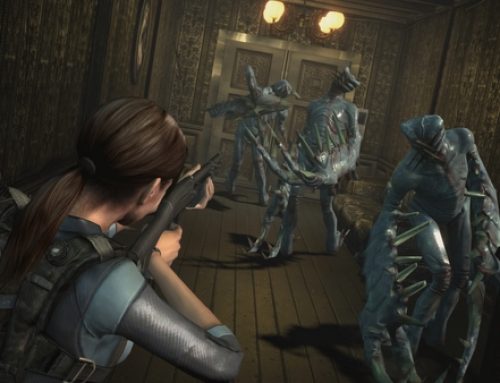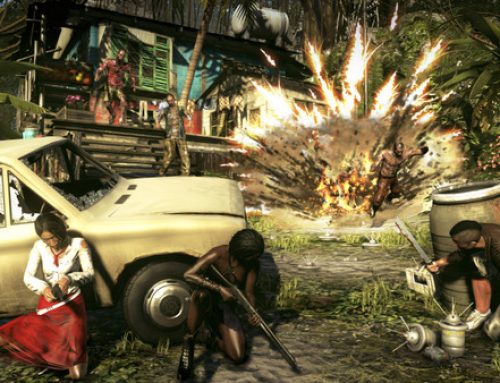A recent article by Tracey John over at 1UP.com drew my attention to the fact that “Mass Effect 2,” unlike most BioWare-developed games, doesn’t allow Commander Shepard, the game’s main character, to have gay or lesbian relationships. Like any good journalist, John wondered why that was the case: Was it simply an issue of time, or did BioWare, which obviously aimed for a large audience with “ME2,” omit the content to avoid controversy?

A blogger's Commander Shepard only had eyes for Tali'Zorah, right. But the Quarian female only has eyes for men.
Before I go further, it’s worth mentioning that there are, in fact, three possible female-female relationships in “Mass Effect 2,” though none will net you the game’s “Paramour” achievement. One of the relationships goes unconsummated, while another ends in Shepard’s untimely death. The third is with a crew member who is never a member of Shepard’s three-person party. Even though a few options are there, it’s easy to see where gay gamers or players who like to role-play as gay characters, would feel shortchanged by the game’s design. Heck, there are no male-male relationships possible at all.
So John asked “Mass Effect 2’s” executive producer, Casey Hudson, and BioWare CEO Ray Muzyka why that was, and got vaguely worded, somewhat unsatisfying responses.
Hudson framed his response in the context that every decision requires BioWare to come up with new content, as they don’t just want to include the same dialogue and in-game movies with different character models swapped in. Muzyka, on the other hand, said that, unlike other BioWare titles, the developer sees the “Mass Effect” games as having a more predefined protagonist in Shepard than it did for, say, “Dragon Age: Origins.” And this predefined Shepard, apparently, shies away from same-sex relationships.
So did BioWare “sell out” with “Mass Effect 2,” after the first game’s lesbian sex scene generated some Fox News controversy, or does Hudson’s response indicate that it might have been an issue with resources, either time or space on “ME2’s” two discs? It’s hard to say based on these responses, which you can read in their entirety in John’s article. Nonetheless, developers clearly need to strive for balance on gay relationships with computer controlled characters. It’s clear that the “Mass Effect” games don’t quite get there.
The need for balance exists because gay gamers, or those who role-play as gay characters, want content that appeals to them, and they’re not going away. On the other hand, there’s something to be said for trying to avoid having every single potential love interest hooking up with whomever happens to be interested in him or her. A role-playing game in which everyone you interact with is bisexual and open to a relationship with the player-character would be jarring, impractical and ridiculous. To look at it another way, having a character you fancy tell you they’re just not that into you, whether it’s for reasons of sexual orientation or simply a reflection of your character’s poor grooming habits, would add a touch of realism to most games.
So why not make a video game that reflects real life, with some gay characters, some heterosexual characters, folks who just aren’t interested and maybe a bisexual character? Better yet, go one step further and make the bisexual character male. (For some reason, probably due to male fantasies, bisexual characters in video games are nearly always female.)
Such a design decision would not only reflect the complex reality of modern sexual identity, it could even add an element of replayability. (Fancy that cute green alien? Well, you’ll have to replay the game if you want to woo him because he only likes men.) Throw in an achievement or two for romancing characters of varying genders and sexual orientations and you’d even be encouraging players of your role-playing game to, you know, role-play a bit.
Such an approach to game design would likely foster a little controversy, but the hullaballoo surrounding “Mass Effect’s” sex scenes didn’t do anything to keep the sequel from selling more than 2 million copies during its first week in stores, according to publisher Electronic Arts.
If it seems like I’m picking on BioWare, that’s not my intent. If anything, BioWare has been a leader in including gay characters, or at least characters who are open to the possibility of same-sex relationships, in its games. But developers still have a ways to go before they get there, so to speak.



